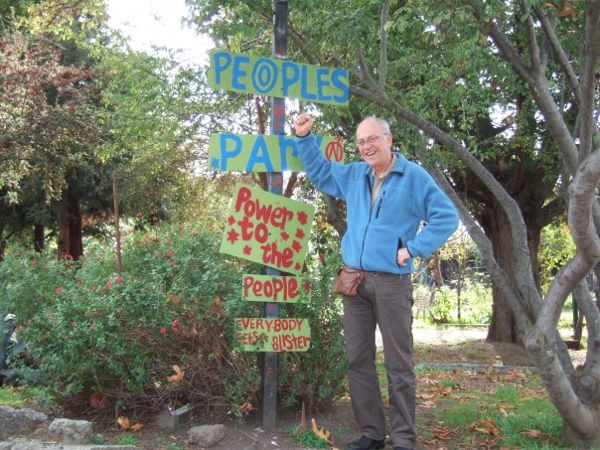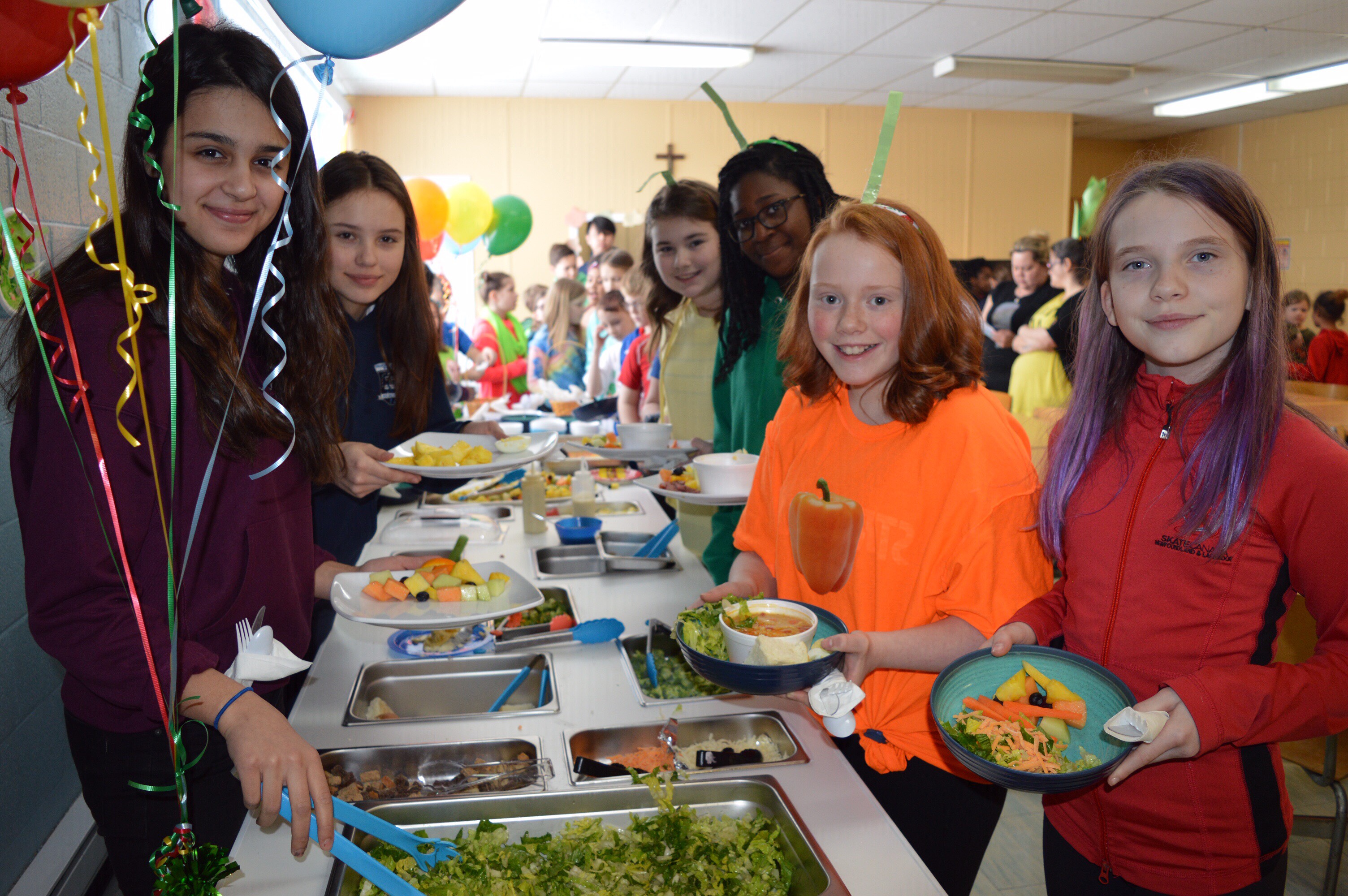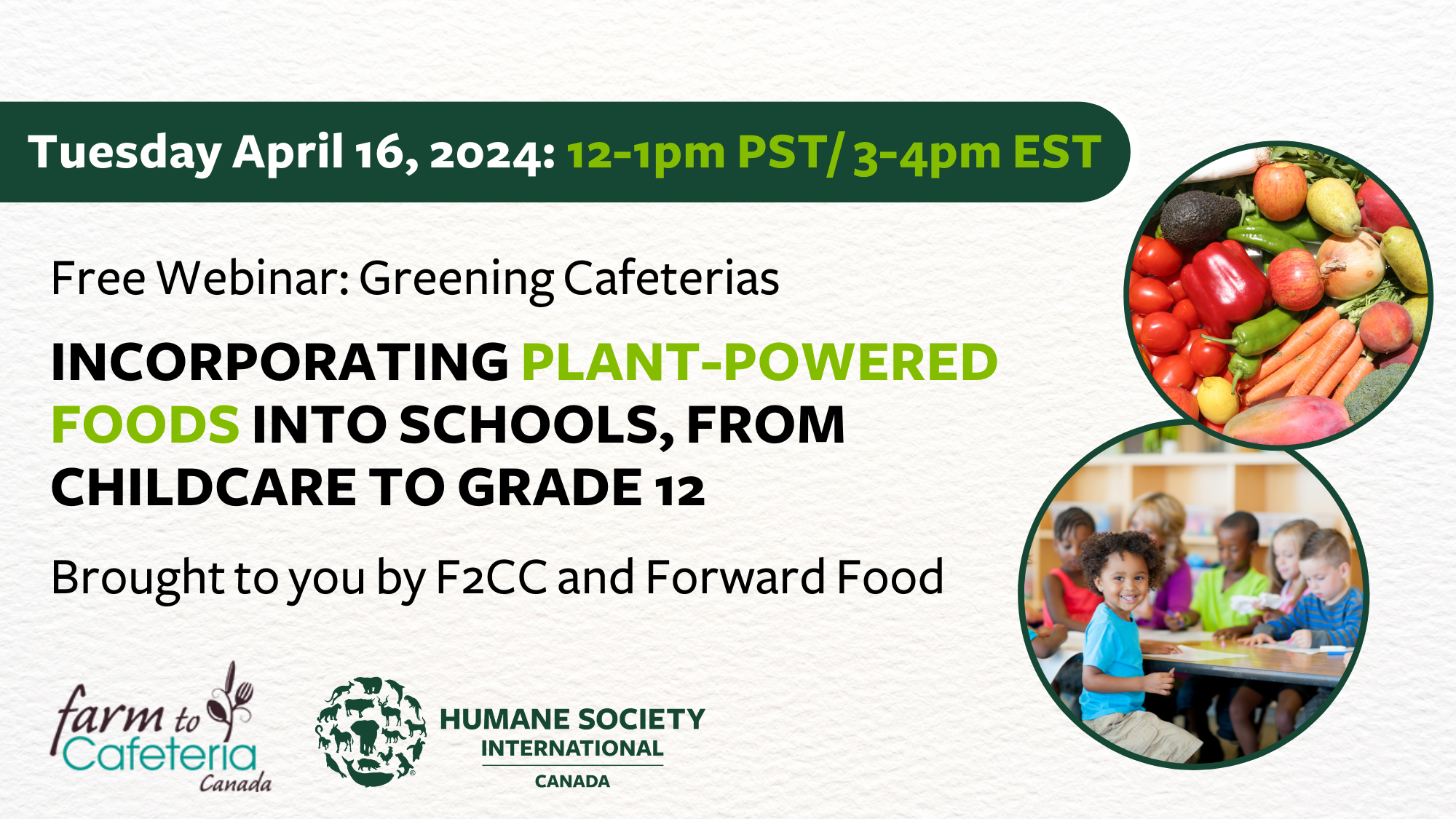Photo Above: Food activist and organizer Roberts: ‘Partnerships are the future of food policy.’
Wayne Roberts describes himself as the “Mr. Magoo” of municipal food policy; often stumbling and frequently saved by luck (the kind that comes from years of practice.)
Roberts has decades of experience as a community organizer, and from 2000 to 2010 served as the manager of the Toronto Food Policy Council. It was a decade that saw local food become a movement in its own right.
His most recent book – Food for City Building: A Field Guide for Planners, Actionists & Entrepreneurs — is a combination memoir of his time spent on the council, and a how-to guide for building grassroots food systems in cities. Here, he shares his thoughts on what’s next for the movement, how to build a ‘Big Tent’ of school food supporters, and why social capital is the most important resource of all.
Food is political but also very personal. Do you think there is broad public support in Canada for a federal school nutrition program – is it something parents would vote for?
The future of good government programs will depend on active, informed partnerships between citizens and government.
School food programs, for example, will have multiple payers and multiple partners, and will engage students, parents, teachers, boards of education, cities, provincial or state education and curriculum planners, farm reps and federal health planners. Partnerships are the future of food policy, which is why food is so central to the overall politics of the future. We will likely pioneer the change for other sectors.
Whether parents, non-parents and grandparents will vote for school food programs is a touchy matter because the success of food politics depends on organizers’ abilities to form a “majority of minorities.”
Only a minority of voters at any time are parents of young children, for example. But we need to form a coalition that includes local farmers, educators, disease prevention enthusiasts, environmentalists, people looking for good jobs in food service, and so on — all the people who will benefit. Food policy needs to be about policy that can create such coalitions.
You write that we need to talk about how we frame our food questions. Can you explain?
We need to do a much better job of framing. For example, we’re badly hurt by the “nanny state” frame that the junk food industry concocted as the way to frame legislation more accurately framed as promoting child protection or a consumer’s right to know.
We have to find frames that resonate. We also need to frame issues in open-ended ways that can open minds and build coalitions. For example, I work to reframe ‘school meal programs’ as ‘school food programs.’ Food includes learning to garden and cook at school, including food in the curriculum as part of history or environmental studies courses, health literacy, and so on.
Above all, we need to frame food issues as city issues, as central to successful cities. I am devoting a big chunk of my retirement to promoting that reframing of food issues.
You discuss the need for a “Big Tent” to encompass all interests in a better food system. What do you mean by this?
Vandana Shiva says the food movement is a movement of ands, not buts.
People who support organic, bio-dynamic, permaculture, agro-ecology, sustainable and local food, for example, need to both educate people about the particulars of their philosophy AND campaign as one team to support all options that offer an alternative to today’s dominant system.
You will be hard-put to find any successful social movement in history — think of old campaigns for women’s right to vote, for an end to slavery, for union recognition, for medicare, for gay rights — that was not based on learning to build Big Tent campaigns. As the food movement matures and struggles to win influence, it will veer toward Big Tent organizing.
The job creation aspect of the local food movement is something you talk about quite a bit. What’s the potential there?
I put food’s potential to create lots of good, rewarding and fulfilling jobs at the centre of my efforts to reframe food issues. In promoting a focus on food jobs, I am trying to build the food movement as a movement of economic rights, and a movement that deals with the engine room of political and social and economic systems.
‘We are about everyday people being able to enjoy a good life’ — is what a focus on food jobs says. And because it’s about good jobs, it’s against dead-end McJobs. Likewise, we are about everyday people claiming and taking the power to create a food system that makes food about creating good jobs promoting health, not just jobs tending to the sick.
Food has become a more prominent funding area for philanthropic foundations in recent years. What’s the impact of these dollars?
The foundations have done a wonderful job funding the start-up of the food movement and they should stick to that line of work – innovation. But the food movement has to start talking about hundreds of billions of new money coming from misspent money, not tens of thousands of money coming from foundations.
The most important thing to say about funding of food-related projects is that the whole area is totally and irresponsibly under-funded. Various governments spend close to half their budgets on medical care, and close to half of that spending could be better spent preventing disease through food measures.
You describe yourself as the “Mr. Magoo” of food policy; often stumbling but often saved by luck. To what do you attribute this luck?
Doing food policy council work makes for an accident-prone job.
Your job is to be the Johnny Appleseed, sowing food ideas far and wide, hoping that the director of garbage will see how food fits in, the director of economic development will see how food works wonders, and so on.
You spend a lot of time trying to persuade people who have more authority, more resources than you, and who know more about their area than you. So inevitably you make a lot of mistakes that can get you in a bit of trouble. I did my best not to personalize issues, name-call, not embarrass anyone in public, that kind of thing.
I also cultivated relationships — and relationship-building is fundamental to good advocacy — with people who watched out for me, and who often caught my mistakes just in time to avoid a disaster.
I had great luck that way, but I sometimes like to think that it’s the kind of luck golfers get when they say ‘the more I practice, the luckier I get.’
You can’t get away with what I did unless your work is embedded in relationships built around more than advocating ideas. You have to work at building mutually beneficial and protective relationships with people who have great social skills. Social capital — that’s the key.
The views expressed in this article may not necessarily reflect those of Farm to Cafeteria Canada.





